Rats can rapidly become a major health risk and not just a nuisance. They can also infest your garden and outdoor areas even though they usually target your house. Knowing how to get rid of rats in the garden is essential for any homeowner dealing with these persistent pests.
So, Fantastic Pest Control has made this quick handy guide to answer the most common questions and explain exactly how to get rid of rats in the garden.
Table of Contents
Signs of Rats in the Garden
Rat droppings
Among the most obvious indicators of a rat invasion are rat droppings. Usually measuring roughly 10 mm in length, these compact, black, oval-shaped elements resemble big grains of rice. Check under bird feeders, pet food bowls and compost bins; these droppings are commonly discovered next to food sources.
Droppings might help you to estimate the degree of the infestation. Older droppings get brown and crumbly; fresh ones are black and fresh. Regular detection of fresh droppings indicates that the rats are still active in the surroundings.
Pets acting strangely
Your pets – especially dogs and cats – will often detect a rat invasion before you do. Your dog or cat may be particularly curious in specific garden areas—sniffing around burrows, fences, or sheds—because they have sensed the smell of rodents. Pets may also paw at secret areas where rats are nesting or moving about or bark and scratch.
Burrows and tunnels
Rats, particularly the common brown rat, are skilled diggers. They create burrows in the ground, which often have smooth, well-worn entrances. These burrows are usually located close to food sources, such as compost piles or rubbish bins, and may be hidden under shrubs, garden sheds, or decking.
Bite marks
Rats constantly gnaw to keep their teeth sharp, and you’ll often find evidence of this in your garden. They can chew on anything, but rubber garden hoses, wooden structures, and even plastic containers are common targets. Bite marks are small and jagged, with a rough texture.
Besides causing damage to hoses and garden furniture, rats may also gnaw on electrical wires or irrigation pipes, which can lead to serious issues like water leaks or even electrical fires. Inspect any chewable material for these marks, especially around your garden shed or compost bin.
Rat tracks and smear marks
Rats typically move along the same paths in your garden, creating tracks in dusty or muddy areas. Look for small footprints, tail drag marks, or smooth paths that rats create by repeatedly travelling the same routes. If the rats are running along walls, you might also find greasy smear marks, as their fur leaves behind oily residues on surfaces they frequently pass.
Read more about Signs of rats.
How to Get Rid of Rats in the Garden
Although rat poison can help to control rat infestations, it is not always the ideal choice for people wondering how to get rid of rats in the garden, particularly close to food supplies. We will go over natural ways and safer substitutes to assist you in eliminating rats from your garden without running the danger of contaminating anything.
Remove all clutter
Rats thrive in messy surroundings, hence the first thing to make your garden uninhabitable for them is to clear everything that offers shelter. This covers wood piles, abandoned plant pots, outdoor equipment not in use, and overgrown shrubs. Shy animals, rats rely on hiding places to be comfortable. You expose them by clearing clutter, therefore driving them to search for a new home.
Apart from ordinary cleaning, routinely cut the grass and cut back hedges or plants that produce dark, secluded areas where rats could hide. Make sure garden sheds and other buildings are tidy and orderly to reduce areas where rodents could hide or nest.
Live traps
A considerate approach to catching rats without killing them is to use live traps, particularly if you’re not sure if the rodent is a rat or a member of an endangered species. These traps lure the rodent in with bait, such as peanut butter or fruit, and then close once the animal enters. To keep the rat from coming back, you must release it at least two miles from your house after it has been caught.
Live traps work well for small-scale infestations, but they might not be feasible for bigger ones. If you’re thinking about utilising live traps, make sure to check them frequently and move the rodents quickly to prevent stressing them out.
Snap traps
Snap traps are still a popular and practical way to catch rats. They operate by instantaneously killing the rat with a spring-loaded device. Rats like to run along walls rather than through open spaces, so position snap traps near any probable nesting places and along walls for a better success probability.
To improve your chances of catching rats, try a range of baits, such as bacon, chocolate, or seeds. Additionally, consider leaving unset traps in the garden for a few days before baiting and setting them to deter rats who are afraid of the bait.
Flooding burrows
Although flooding rat burrows is a natural way to keep rats out of your yard, there are possible concerns involved. Rats may be quickly removed from their tunnels by using water, but if their burrows are too near to your garden beds, you run the risk of your plants being damaged.
Before flooding, identify any tunnels by looking for entrances near food sources. Consider using this method as a last resort to avoid waterlogging your plants and soil.
Natural repellents
Use natural repellents if you’re searching for a more environmentally friendly option. It is well known that strong scents like eucalyptus, lavender, and peppermint repel rats. You can keep rats away from your garden by planting these herbs or applying their essential oils. You can simply surround your garden with potted lavender or scatter oil-dipped cotton balls near locations where you fear rats are active.
Natural deterrents can also be created by combining garlic and cayenne pepper. If you want to keep rats out of your garden, sprinkle this mixture about. For best results, reapply after a period of intense rains.
Secure your food sources
Rats are opportunistic feeders; they will establish themselves wherever there is a consistent source of food. Ensure that every food source in your garden is protected. Compost bins, pet food and even falling fruit from trees fall under this category. When composting, make sure your bins are well shut and stay away from composting dairy or meat items as these can draw rats.
Think about utilising compost bins that are rat-proof and made to keep pests out. Make sure your compost pile isn’t serving as a food source for unauthorised guests by giving it a regular inspection.
Check also:
How to Get Rid of Rats in the Garden Without Poison
How to Get Rid of Rats in the Garden Shed
- Get equipped. You might get in contact with rat faeces or with a dead rat, and that can be extremely dangerous for your health. So, put on a face mask and rubber gloves.
- Find and seal all holes. Look at all the possible entry points in the walls, door, floor, and even roof. A rat can easily get through a coin-sized hole, so seal all of them tightly.
- Install traps. Be it traps for instant killing, or the more humane live traps, just make sure to make the shed environment inhospitable.
Read more about How to get rid of rats.
Are you dealing with a pest infestation?
You don't have to be alone in the battle against pests. Hire a professional pest expert!
Call usHow to Keep Rats Away from the Garden
Once you’re certain you are rat-free, it’s a good idea to make a few changes in the garden in order to make sure they won’t come back.
Get a pet
If you don’t have a dog or an outdoor cat, now might be a good time to consider the option. It’s not advisable to use your pets as pest control, but as a preventative measure, they can do a good job.
Plant your own pest control
Rats generally avoid lavender, so you can plant it in your garden or place lavender pots around their preferred hang-out spots to help deter them. For a more lasting solution, sprinkle lavender and mint around the perimeter of your yard to keep rats away.
Put soft garden furnishings away
Keep your patio furniture cushions in a secure cabinet when not in use. If you already have rats, you likely know that they love to nap on soft surfaces just as much as we do. It’s best to store cushions to keep them clean and free from rat poop and urine.
Don’t keep woodpiles out in the open
Wood piles provide a nice little hiding spot for rats when they need some privacy. Keeping a woodpile away from your house or a fence prevents rats from getting access to your home and food. You should store firewood at least 18 inches off of the ground and at least four feet away from any structures.
Keep food away from the lawn
Things like bird feeders and pet food can easily attract rats and other rodents, so don’t put any there, unless it’s highly necessary.
Check also: How to feed birds without attracting rats
Shut the rubbish bin tightly
There are very handy locks you can install on the rubbish bin, so the smell from organic waste doesn’t attract just rats, but any wildlife in general.
Check also:
Keep the garden tidy
The less clutter you have, the more inhospitable your garden would be for rats. This includes the lawn. High grass is perfect for hiding, so make sure to mow it regularly.
Block access to the garden shed
Block holes in the walls and door and make sure there are no hollow areas under the shed that can serve as a potential hiding spot. This will keep the rats away from the shed.
Remove water sources if possible
It’s a tricky thing to do, but it’s a good idea to remove sprinklers and birdbaths from your lawn. Unlike mice, rats cannot survive without water and this would be a good reason for them to keep away.
Rats are very difficult to deal with when they manage to increase in number, so you should ever be vigilant to notice the first signs and act accordingly. If you let a rat infestation get out of hand, you may find it hard to eliminate without the help of professional rat pest control, and the Fantastic Pest Control team is always ready.
Read also: Rats Under Decking – How to Stop and Remove Them
More on Rats in the Garden
Why do you get rats in the garden?
Rats will infest a garden if they find it hospitable for a dwelling. So, if your garden offers plenty of hiding places, they will love it. If it offers them lots of food, be it from a food garden you’re working really hard on, pet food left outside, or a constantly opened rubbish bin, they will love it. Have a sprinkler? They will love it.
Where do rats nest in the garden?
Rats would find the safest place they can to make their nest. This can be a garden shed, hollow space understructures, or another cluttered area with a roof. It’s possible that they also use the nearby sewers.
If you disturb a rat’s nest, there are a number of potential consequences.
Are garden rats dangerous?
Yes. It doesn’t matter if they’re in your garden, or in your house – rats are a dangerous pest that carries an array of serious diseases, which are harmful to people and pets. Not only that, but they can also chew on electrical cables, which can cause significant damage to your property.
What diseases do rodents carry?
Rats, mice and voles are carriers of various rodent-borne diseases, including salmonella, leptospirosis, cryptosporidium, Hantavirus and rat-bite fever.
In the garden, pests may not be as obvious as in the home. However, contaminated soil and plants may spread diseases. Direct contact with rodent droppings, bites, or scratches can be dangerous to humans and pets.
What damage can rats cause in the garden?
The first damage you can think of is if they eat all the fruit and vegetables you grow in your food garden. If you store any produce in the garden shed, they will most likely eat the food there as well. If you have compost bins, they will invade those, too.
Their sharp teeth are able to gnaw on fences and shed doors as well as electrical wires and water pipes. Additionally, they dig holes and shallow tunnels, which can disturb your lawn and create uneven surfaces.
Where do rats live in the winter? Do rats hibernate?
Rats will find a warm place to stay during the cold season. Usually, this will be a house or buildings such as barns. However, if they cannot access your home, they will find a hole that can also work as a shelter.
Although rats don’t hibernate, they can prepare for the winter by collecting their food supplies in other ways. They need to eat twice as much food in the winter. It is necessary for them to consume this amount to maintain their body temperature./p>
In fact, rats are notoriously resilient in cold weather. They can survive the winter quite well and often need to exploit human resources to survive.
Are you dealing with a pest infestation?
You don't have to be alone in the battle against pests. Hire a professional pest expert!
Call usConclusion
While dealing with rats in your garden can be difficult, it is quite feasible with the correct strategy. You can efficiently get rid of rats in the garden and stop them from coming back with a little work and a combination of environmentally friendly techniques and natural repellents. Remember that early identification of rat activity is vital; so, be alert about noticing signs of an infestation.
It’s always smart to see a professional if you discover your efforts are insufficient or the rat situation gets too bad. Fantastic Pest Control guarantees peace of mind and a pest-free outdoor environment by providing professional, customised solutions to help you safely and successfully eradicate rats from your yard.
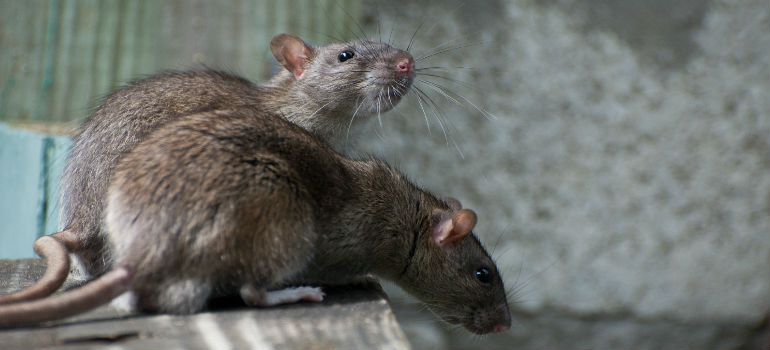

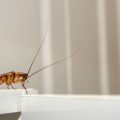



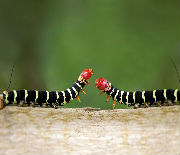
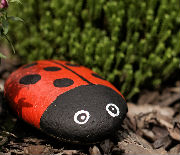
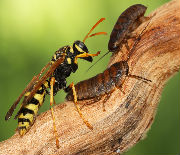
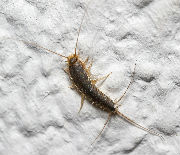
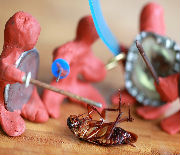
Pests like rats, mice and cockroaches may appear in your house if you neglect cleaning and do not take out the trash on time. I’m surprised people live in filth and then wonder why their place became infested.
I live in Wales near mountains and the garden has holes for the water to flow but I’ve spotted a rat what can I do my garden is clean but next doors is overgrown and it’s rented
Rats are cutting my garden plants.
What has “rented” got to do with anything? Go and speak to your neighbour. Start a dialogue. They may be receptive, and they could even contact their landlord if the responsibility is the landlords. If they are obnoxious, speak to environmental health at your local council. House owners are, as a matter of fact, more likely to not take care of their gardens than those in rented or leased accommodation…just for your information.
No, I think what she meant was that in general homeowners take a little more care of their garden for obvious reasons. Why be argumentative just for the sake of it?
Renters don’t care for a property like their own. They also won’t want to pay any additional costs. Stop being offended by a general statement just because you might not fit that bill.
I like my garden to be wildlife friendly, That means I’m happy to see native mice around the place and have many good locations but rats are not native and not welcome, I’m looking for rat solutions that with not harm the mice, hedgehog, foxes and birds. So no poison. A good well trained rat dog seems to be the solution but most are trains to go for mice also as most people are dicks and won’t to live a dead lands. We are careful about food sources, small field mice don’t need your leftovers but still have two locations where rats have displaced the wildlife. I’m guessing between the bugs, bird eggs and even the mice and small rodents the rats are finding plenty to prey on.
Superb blog, much appreciated for the information.